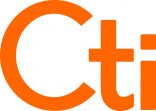Social Data Science



The third year of the ENSAE Paris engineering program includes six specialization tracks. Each track has been designed to offer a coherent sequence of courses (advanced theoretical courses, applications, projects, seminars, etc.), preparing students for a major field of work and giving them a broad and in-depth vision of that field. Each of the professions practiced by ENSAEs will call to varying degrees on statistical methods, data science and modeling, which are therefore present within each track.
Learn more about admissions to the engineering program
The Social Data science track includes a core of advanced methodological courses in statistics and econometrics, as well as a wide range of courses on advanced quantitative analysis of economics and sociology.
Profiles
In this track, the emphasis is on individual data econometrics, survey statistics, public policy evaluation methodologies, but also the exploitation of new data sources.
The "Data Scientist" thus trained possesses a very high level of scientific expertise that enables him/her to assist in decision-making in many fields: public policy evaluation, corporate policy evaluation, survey statistics, or to carry out academic research. This versatile profile can lead to careers as experts as well as to decision-making or management positions in companies.
ENSAE's data science tracks allow students to acquire a highly qualified profile in applied statistics and econometrics for which the job market opportunities are extremely varied, from data scientist to teacher-researcher, including consulting, and public or industrial statistical expertise.
Careers
For several years now, we have been witnessing an explosion in the volume of data available, in a wide variety of fields (e.g. genetics, neuroscience, climatology, but also finance, marketing and human and social sciences). After a period where the questions were mainly related to the storage and preservation of these data, it is now the issues related to their statistical exploitation and their analysis that appear to be of great importance. The jobs generated require both technical skills and a strategic understanding of the underlying issues. The cross-disciplinary nature of the quantitative methods presented in this track allows students to access a wide range of jobs, both in the public and private sectors.
The courses in this track emphasize modeling and the empirical study of agents' behaviors, with the aim of enlightening public or private decision-makers in their choices and the quantified understanding of their impacts. More precisely, it is a matter of being able to develop a process for constructing economic and social data and to know how to use and analyze these data thanks to recent economic and sociological theories. This path leads to research positions in institutions responsible for evaluating the effectiveness of public policies or studying the behavior of economic agents: INSEE, the Ministry of Finance, but also the Ministry of National Education, the Ministry of Labor or Health, national organizations such as social security funds, UNEDIC, OFCE, the Bank of France, Crédoc, international organizations such as the OECD, the World Bank, the European institutions or the IMF, as well as polling institutes and research laboratories (the Institute of Public Policy, for example). Coupled with a research master's degree, this track also leads to research in applied economics or quantitative sociology.
Teaching
The compulsory scientific courses and the optional courses recommended for the track are described below. Each semester, you can choose one modern language (maximum). English is compulsory if your level is lower than B2. The options can be mixed between the different tracks (under time constraints) to create hybrid profiles. It is then recommended to discuss their coherence, as well as the articulation of the choice of courses with a possible M2 followed in parallel, with the Master studies director or/and the person in charge of the tracks.
The courses listed below are for informational purposes only, and are provisional. They correspond to the official curriculum for the 2024-25 academic year.
You can find this curriculum in PDF format on the ENSAE intranet: Scolarité => Troisième année => Près-requis et choix des voies => Schéma_UE_3A_2024_2025 (three documents)
First semester
- Second year internship: 7 ECTS credits for the 1st semester of the 3rd year
- Integrated curriculum
| Course | ECTS | Hours (course+tutorials) |
|---|---|---|
| Applied Statistical Learning | 4 | 18+6 |
| Microeconometric Evaluation of Public Policies | 4 | 24+0 |
| Topics in quantitative sociology or Ethics and responsibility in data science | 3 ou 2 | 24+0 or 12+0 |
| Projects in economics, sociology, and data science - S1 | 3 | 4+8 |
You can choose from 3 to 5 options (including foreign language) from the entire 3A course catalog, semester 1 (subject to compatibility with your schedule), to reach a total of 30 to 31 ECTS over the semester. We recommend the following courses in this track:
| Course | ECTS | Hours (course+tutorials) |
|---|---|---|
| Advanced econometrics: Panel data and duration models | 4 | 24+0 |
| Algorithm Design and Analysis | 3 | 18+0 |
| Demography | 3 | 18+0 |
| Experiments in Economics and Social Sciences | 4 | 24+0 |
| Health Economics | 4 | 21+0 |
| Hi!ckathon | 2 | 0+0 |
| Labor economics | 4 | 24+0 |
| Macroeconometrics and Machine Learning | 3 | 18+0 |
| Methods in quantitative sociology | 3 | 24+0 |
| Randomized Methods and Policy Evaluation | 4 | 24+0 |
| Cultural sociology | 4 | 24+0 |
| Political Economy | 2 | 12+0 |
Second semester
| Course | ECTS | Hours (course+tutorials) |
|---|---|---|
| Machine Learning for Natural Language Processing | 3 | 18+0 |
| Science of social and economic networks | 4 | 24+0 |
| Projects in economics, sociology, and data science - S2 | 3 | 4+8 |
You can choose from 3 to 5 options (including foreign language) from the entire 3A course catalog, semester 1 (subject to compatibility with your schedule), to reach a total of 30 to 31 ECTS over the semester. We recommend the following courses in this track:
| Course | ECTS | Hours (course+tutorials) |
|---|---|---|
| Advanced Econometrics: Semi-parametric and simulations | 4 | 24+0 |
| Advanced Microeconomics: design and study of markets | 4 | 24+0 |
| Bootstrap and Resampling Methods | 3 | 18+0 |
| Data Storytelling | 3 | 18+0 |
| Economics of redistribution and social protection | 3 | 18+0 |
| Economics of Inequality: Measures and Findings | 4 | 24+0 |
| Surveys making | 3 | 18+0 |
| Machine learning for econometrics | 4 | 24+0 |
| History and epistemology of Statistics | 3 | 18+0 |
| Surveys Seminar | 3 | 18+0 |
| Sociological perspectives on inequality | 4 | 24+0 |
| Sociology of health and illness | 3 | 18+0 |
| Structural Econometrics of Education | 4 | 24+0 |
| Empirical Environmental Economics | 4 | 24+0 |
| Place, Market and Inequality | 3 | 18+0 |
| Urban Labor and Housing Markets | 2 | 12+0 |
- The end-of-study internship: 10 ECTS credits for the 2nd semester of the 3rd year











